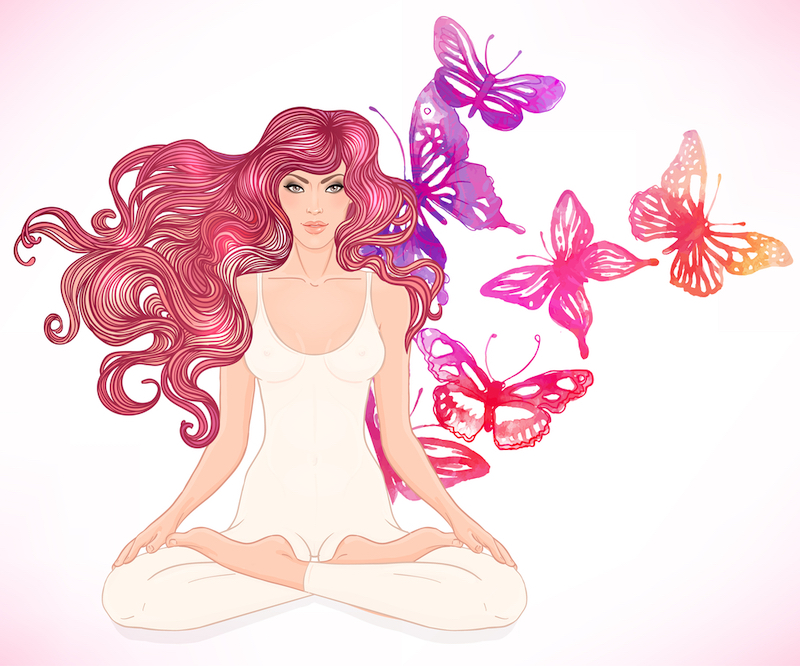5 Ways to Identify Dryness and How to Remedy It
Branded Content by Cosmic Press
If you are nearing the end of your cycle and starting menopause you may be experiencing some less than pleasant symptoms. Know that what you are going through is normal and every woman goes through this change. Perhaps you are excited to not be having a cycle anymore but are wondering what you can do to treat these annoying menopausal symptoms. Having dryness is not only bothersome, but can also affect your quality of life, sexual satisfaction, and your relatioship with your partner. Luckily, there are several home remedies for dryness you can try from the comfort of your own home.
What Causes Dryness
You knew that change of life was approaching, but you had no idea there were so many things that would be changing including dryness. This common complaint is normal and is due to the fluctuating hormones your body is experiencing. The official term for this is Vulvar and Vaginal Atrophy(VVA) or also known as genitourinary syndrome of menopause (GSM) which is the thinning, drying, and inflammation of the vaginal wall. Although so many women suffer from this, few realize there are ways to treat it either with home remedies or with medication. If left untreated, it will become worse as your estrogen levels continue dropping and your vaginal wall becomes thinner, drier, and less elastic. Some other less common causes of dryness could be a UTI or yeast infection, nutritional imbalances, STDs, waxing, shaving, or products that have messed with the natural pH balance of your vagina.
What Are the Symptoms
Being able to recognize the symptoms is the first step in knowing if this is your problem and how to treat it. There are many and you may experience one or more of the following:
- Vaginal tissues become thin, dry, and less elastic.
- Decreased lubrication during sex.
- Burning, itching, and stinging sensation in the vagina and around it.
- Vaginal dryness, burning, discharge, irritation, and/or itching.
- Soreness in and around the vagina.
- Frequent urinary tract infections.
- Urgency and frequency of urination.
- Urinary incontinence.
- Discomfort, pain, or burning with urination (aka dysuria).
- Low sexual desire.
- Vaginal pain and/or bleeding with sexual intercourse.
- Vaginal infections increase.
If you know you suffer from any of these it may be time to look into some treatment options.
How to Treat Dryness
Whether you prefer to see your doctor and get some medicine or implement some lifestyle changes, there are several options to treat this.
Healing Foods
There is a popular trend that encourages food to work as medicine. Good foods are full of vitamins and minerals that support our body’s functions. There is also low risk, but it does take some consistency. a few foods that may help are:
- Foods high in fatty acids (Omega-3s)
- Foods high in isoflavones
- Green leafy vegetables
- Taking a daily vitamin
- Cranberry juice
- Sweet potatoes
- Probiotics and yogurt
- Hot chilies
- Avocados
- Plenty of water
A healthy diet is the first step to a healthy body working at its best.
Estrogen Therapy
This sounds complicated but this is simple and can be done at home. Since the dryness is caused by a decrease in estrogen, the remedy is to add some estrogen back in the form of pills, patches or creams. This is gently, safe, and effective when done consistently. If you find this is not enough for you there is also a prescription you can try called Dehydroepiandrosterone (DHEA) which is a hormone containing treatment to help slow the signs of aging, help with thinning, and improve sexual intercourse.
Lubricants
These can be bought over the counter and help restore your natural ph balance. Look for one specifically for vaginal hydration.
Herbal Supplements
There are several herbal supplements that may be helpful such as:
- Ginseng
- Black Cohosh
- Red Clover
- Dong Quai
- Kava
- Evening Primrose Oil
Please do your research and check with your doctor to see if these are safe for you.
Things to Avoid
There are also some things to avoid that could make things worse such as:
- Douching, which can throw off your body’s pH levels.
- Vaginal products with perfumes, artificial colors and fragrances, and herbal extracts. These things can throw off your pH, cause irritation, or contact dermatitis.
When to Consult Your Doctor
You may not feel the need to immediately consult your doctor but you may want to if your symptoms are causing a lot of discomfort and are not remedied with the above helpful things you can try at home. Your doctor can get a treatment plan for you and even give you a prescription that can help. While this is a normal part of life, it does not have to control your life.
If your vaginal dryness is caused by an infection, an STD, bacterial vaginosis, eczema, or psoriasis you will have to see your healthcare provider for treatment. Home remedies can be a safe and natural way to treat common problems but more serious ones will need a medical professional.
Get Your Life Back
If this part of life has left you feeling a little lost or embarrassed then you are not alone but there is something you can do. Be sure to maintain a balanced diet, drink plenty of water, get lots of rest, and be open and honest with your partner. Menopause is a normal part of life and you can make it easier on you and your partner by taking care of yourself and getting the help you need. Get back to living, loving, and a wetter you.
Branded content furnished by our promotional partners. The Daily Sundial editorial staff is not involved in its production. Content does not reflect the views or opinions of the editorial staff.










